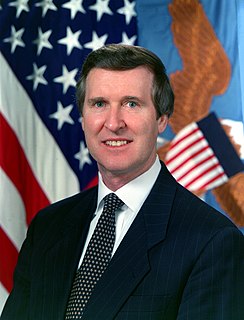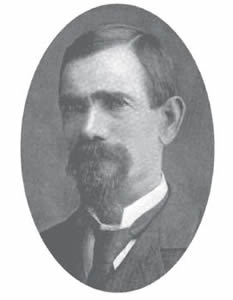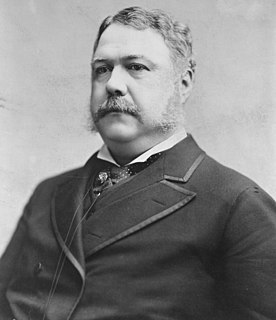Related Research Articles

The Pendleton Civil Service Reform Act is a United States federal law passed by the 47th United States Congress and signed into law by President Chester A. Arthur on January 16, 1883. The act mandates that most positions within the federal government should be awarded on the basis of merit instead of political patronage.

In politics and government, a spoils system is a practice in which a political party, after winning an election, gives government civil service jobs to its supporters, friends (cronyism), and relatives (nepotism) as a reward for working toward victory, and as an incentive to keep working for the party—as opposed to a merit system, where offices are awarded on the basis of some measure of merit, independent of political activity.

George Hunt Pendleton was an American politician and lawyer. He represented Ohio in both houses of Congress and served as the Democratic nominee for Vice President of the United States in 1864.

This section of the Timeline of United States history concerns events from 1860 to 1899.

William Sebastian Cohen is an American politician, lawyer and author from the U.S. state of Maine. A Republican, Cohen served as both a member of the United States House of Representatives (1973–1979) and Senate (1979–1997), and as Secretary of Defense (1997–2001) under Democratic President Bill Clinton.

The National Urban League, formerly known as the National League on Urban Conditions Among Negroes, is a nonpartisan historic civil rights organization based in New York City that advocates on behalf of economic and social justice for African Americans and against racial discrimination in the United States. It is the oldest and largest community-based organization of its kind in the nation. Its current President is Marc Morial.

David Bennett Hill was an American politician from New York who was the 29th Governor of New York from 1885 to 1891 and represented New York in the United States Senate from 1892 to 1897.

Roscoe Conkling was a lawyer and politician from New York who served both as a member of the United States House of Representatives and the United States Senate. He was the leader of the Stalwart faction of the Republican Party, the first Republican senator from New York to be elected for three terms, and the last person to turn down a U.S. Supreme Court appointment after he had already been confirmed to the post. While in the House, Conkling served as bodyguard for Representative Thaddeus Stevens, a sharp-tongued anti-slavery representative, and fully supported the Republican war effort. Conkling, who was temperate and detested tobacco, was known for his physical condition, maintained through regular exercise and boxing, an unusual devotion for his time. Conkling was elected to the Senate in 1867 as a leading Radical, who supported the rights of African Americans during Reconstruction.

The United States Civil Service Commission was a government agency of the federal government of the United States and was created to select employees of federal government on merit rather than relationships. In 1979, it was dissolved as part of the Civil Service Reform Act of 1978; the Office of Personnel Management and the Merit Systems Protection Board are the successor agencies.
The U.S. Commission on Civil Rights is a bipartisan, independent commission of the United States federal government, created in 1957, that is charged with the responsibility for investigating, reporting on, and making recommendations concerning civil rights issues in the United States.

William Dudley Foulke was an American literary critic, journalist, poet and reformer.

The New York City Bar Association, founded in 1870, is a voluntary association of lawyers and law students. Since 1896, the organization, formally known as the Association of the Bar of the City of New York, has been headquartered in a landmark building on 44th Street, between Fifth and Sixth Avenues in Manhattan. Today the City Bar has more than 25,000 members. Its current president, Sheila S. Boston, began her two-year term in May, 2020.

Samuel Everett Pingree was a lawyer, a U.S. politician of the Republican Party, and an American Civil War veteran who received the Medal of Honor.
William Henry Merrill, II was an American electrical engineer who founded Underwriters Laboratories (UL) in 1894.

George Cassety Pendleton was a Democratic politician who served as Texas State Representative and Speaker, Lieutenant Governor of Texas, and U.S. Representative from the 7th District of Texas.

John Peter Shindel Gobin was an American politician from Pennsylvania who served as an officer in the Union Army during the Civil War, as a member of the Pennsylvania State Senate for the 17th district from 1885 to 1898 and as the seventh Lieutenant Governor of Pennsylvania.

Chester Alan Arthur was an American attorney and politician who served as the 21st president of the United States from 1881 to 1885. Previously the 20th vice president, he succeeded to the presidency upon the death of President James A. Garfield in September 1881, two months after Garfield was shot by an assassin.
U.S. civil service reform was a major issue in the late 19th century at the national level, and in the early 20th century at the state level. Proponents denounced the distribution of government offices—the "spoils"—by the winners of elections to their supporters as corrupt and inefficient. They demanded nonpartisan scientific methods and credential be used to select civil servants. The five important civil service reforms were the two Tenure of Office Acts of 1820 and 1867, Pendleton Act of 1883, the Hatch Acts and the CSRA of 1978.

George Franklin Edmunds was a Republican U.S. Senator from Vermont. Before entering the U.S. Senate, he served in a number of high-profile positions, including Speaker of the Vermont House of Representatives, and President pro tempore of the Vermont State Senate.

According to the Constitution of Trinidad and Tobago, the supreme law of the nation, the Attorney General and Minister of Legal Affairs of Trinidad and Tobago is the primary legal advisor to the Government of Trinidad and Tobago.
References
- ↑ "Replies to Mr. Grosvenor.; The National Civil Service League Resents the Congressman's Attack on the Law." New York Times, December 16, 1897,
- ↑ Reynolds, Francis J., ed. (1921). . Collier's New Encyclopedia . New York: P. F. Collier & Son Company.
- ↑ Couturier, Jean J., "Civil Service Systems and Job Discrimination" p 68-72, Integrated Education, 13, 3, May-Jun 75